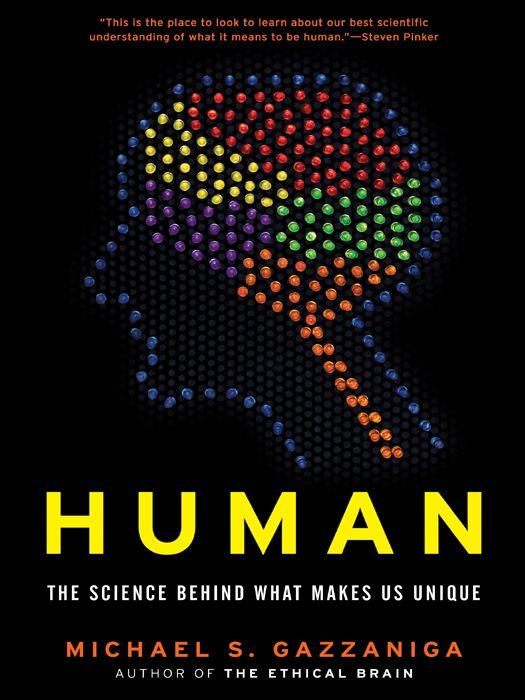
Human
The Science Behind What Makes Us Unique
کتاب های مرتبط
- اطلاعات
- نقد و بررسی
- دیدگاه کاربران
نقد و بررسی

Starred review from May 12, 2008
As wide-ranging as it is deep, and as entertaining as it is informative, the latest offering from UC–Santa Barbara neuroscientist Gazzaniga (The Ethical Brain
) will please a diverse array of readers. He is adept at aiding even the scientifically unsophisticated to grasp his arguments about what separates humans from other animals. His main premise is that human brains are not only proportionately larger than those of other primates but have a number of distinct structures, which he explores along with evolutionary explanations for their existence. For instance, a direct outgrowth of the size and structure of the human brain, along with their origins in the complexity of human social groups, was the development of language, self-awareness and ethics. (Gazzaniga offers some surprising comments on the evolution of religion and its relation to morals.) Throughout, Gazzaniga addresses the nature of consciousness, and by comparing the intellectual capabilities of a host of animals (chimps, dogs, birds and rats, among others) with those of human babies, children and adults, he shows what we all share as well as what humans alone possess.

September 1, 2008
Where the brain is concerned, does size matter? Until recently, research into the evolution of hominid species into "Homo sapiens" has focused on physical features, with the study of cognitive evolution limited to speculating how brain size affected psychosocial capacities. Advances in modern neuroscience reveal that the unique capabilities of the human mind are only possible through much more complex and subtle differences than just size. Neuroscientist Gazzaniga ("The Ethical Brain") discusses the brain functions underlying the defining characteristics of what makes us human: arts, ethics, empathy, conceptual thinking, and self-awareness. The first three parts of his book ("The Basics of Human Life," "Navigating the Social World," and "The Glory of Being Human") explore the neural mechanisms that make humans different from other species. The final section, "Beyond Current Constraints," speculates freely on future brain evolution, both natural and technology-enhanced. Although the text can be a bit dense in places, readers attracted to this subject are generally more than willing to invest the neural energy required to follow it and will be rewarded for doing so. Recommended for academic and larger public library science collections.Gregg Sapp, Science Lib., SUNY Albany
Copyright 2008 Library Journal, LLC Used with permission.

























دیدگاه کاربران